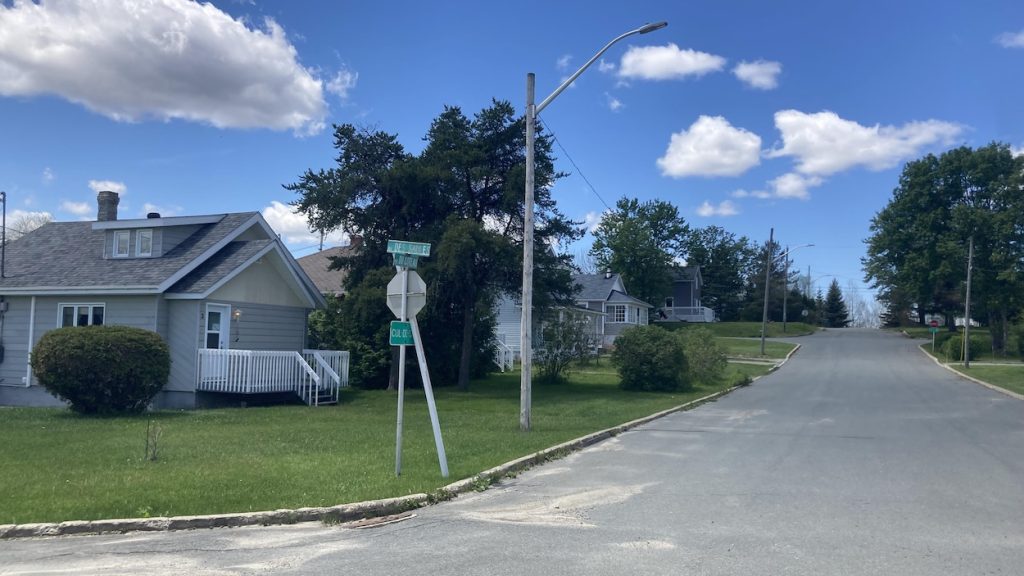
The Beatty Mine entered into a 99-year long lease which is still in force and is now owned by Mine d'Or Duparquet. The company holds title to the former Beatty mine, its lots and its buildings.
During the consultation in 2023, Mine d'Or Duparquet provided a map of the city, with yellow sections delineating land, streets and alleys. It was at this point that many citizens learned that they no longer owned their land, meaning that Mine d'Or Duparquet could theoretically, if necessary, decide to repossess it.

Duparket Gold Mines is a subsidiary of First Mining Gold.
Photo: Radio-Canada / Lise Millet
Radio-Canada tried to obtain this map, but neither the mine nor the city wanted to share it because it was no longer up-to-date.
The old long leases still exist in Duparket. There are people who want to sell their houses and they can't because they don't even own the land they want to sell. So we did a lot of research and today we understand the situation better. We put a process in place to exchange land with citizens and the city
Steve Lines, Vice President Environment and Community Relations for Mine d'Or Duparquet, announced in 2023.
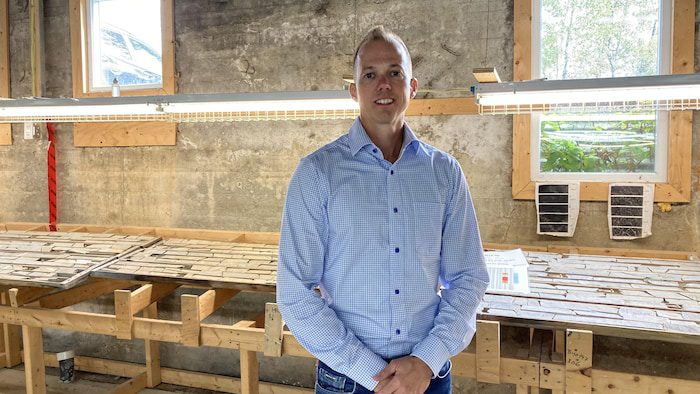
Steve Lines, Vice-President Environment and Community Relations of Mines d'Or Duparquet.
Photo: Radio-Canada / Lise Millet
Radio-Canada was able to access the tax accounts for the last five years of a citizen who discovered a few months ago that he did not own his land.
There is no mention of long-term lease or long-term lease in the notarial documents or other certificates of location of three previous real estate transactions related to his property. Citizens interviewed confirm that they are still waiting for answers and have yet to start taking steps to become owners of the land on which their house is built.
A real curiosity for Louis Grenier, a consultant specializing in finance and real estate development for the LGP firm. He was surprised that many citizens found themselves living on a long lease.
This long lease seems to have been lost somewhere in all the transactions. That surprises me a lot. Let's see when it breaks.
Expert comments.
What is a long lease?
A long lease is an agreement that separates the land from the building. The owner of the land retains ownership – and value in his possessions – but allows the lessee to take advantage of it and set up residence there.
Emphitusis' goal is to ensure that even if development occurs in these areas, he will always have control over this development, preventing it from becoming anarchic or the reason why this land was developed in the first place.
Summary Louise Grenier, expert consultant in finance and real estate development for the firm LGP.
Doing things this way allows the owner to improve the value of his property (land) without being responsible for the financial costs of maintaining the building(s).
A question far from settled
In his message from the mayor published in January 2024, Denise Blais stated The new year should bring an end to all long leases, a problem that has plagued us for years
. Months later, nothing is less certain.
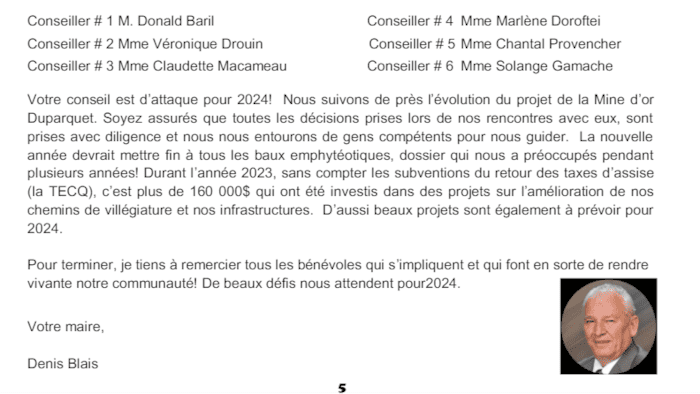
In a mayoral message published in early 2024, Denise Blais supported the development of the Gold Mines project by closely following it.
Photo: Town of Duparket
When asked about the evolution of the file, Duparquet Mayor noted that there is still much to do before this regulatory project is completed.
The municipality is in preliminary discussions with Mines d'Or Duparquet and has expressed its desire to actively contribute to the rectification and regularization of long-term leases. We are currently working with Mines d'Or Duparquet to establish the details of the process to regularize these leases. No decision has been taken yet as the talks are at a preliminary stage
Mayor Denise Blais responded via email in June 2024.
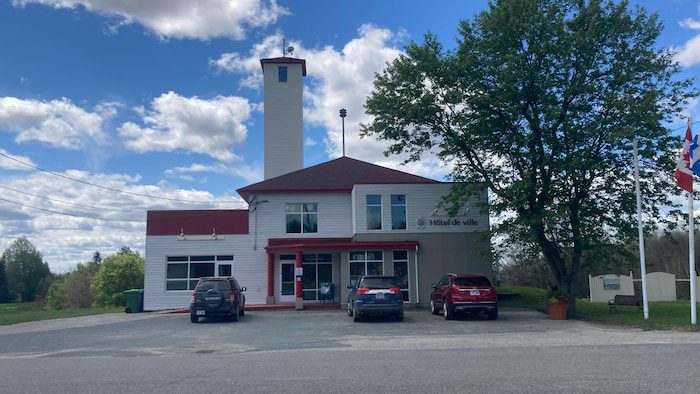
Duparquet in Abitibi-Oust has just over 700 inhabitants.
Photo: Radio-Canada / Lise Millet
At Mines d'Or Duparquet, Steve Lines agrees, confirming that talks are ongoing.
Mines d'Or became aware of the long leases situation after taking over the Duparquet project. We understand the importance of sorting out the situation, which is why we are working with the City to find a solution that is satisfactory to the population.
We respect the process, so we would like the municipality itself to announce the progress in this matter in due course.
said Mr. Lines.
A real imbroglio
They want to start the process of land exchange for long leases on city lanes. We begin with these lands. For us, it is very important to understand our future project well, so we don't make promises to change the land and then change our minds.
Steve Lines of Mine d'Or Duparquet has already suggested.
At this point, many citizens say they don't know where the steps are.
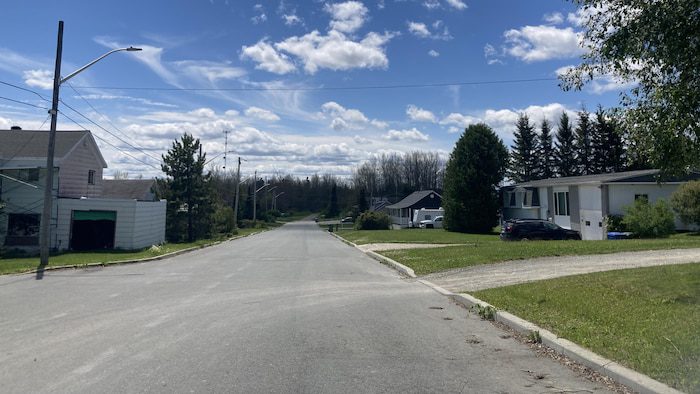
Mines d'Or Duparquet has still not transferred its land to all residents.
Photo: Radio-Canada / Lise Millet
Louis Grenier confirmed that there may be reasons for the dispute. According to him, any long lease has an annual invoice because it is rent.
I think we are in a legal dispute. The landowner collects something like a token dollar annually. By its very essence, a long lease generates rent. If there is no rent for years and there is a sale, I am not a lawyer, but if I am the owner, I have paid for the land, and then I am told in the feedback: “You are not the owner”, there is a long lease. I will compete. In particular, I was not charged rent. Naturally there is a break in the long lease
Supports Louis Grenier.
Before starting the whole process, if the company says it is ready to take a step, Louis Grenier does not hesitate to follow the path of negotiations.
There is certainly room for dispute, but if the company offers to collect notary fees in exchange for land, I'd say a bad deal is always better than a good lawsuit. My advice is yes, pay the notary fee and own your lot. That will solve the problem.
It remains to be determined when Mine d'Or Duparquet will actually be ready to complete these procedures, which we assume is tied to the resumption of mining operations at Duparquet.
Furthermore, along with the titles and assets, the mining company also inherited the environmental liabilities of the former Beatty mine. In this regard, the work of extermination and removal of remains has started.
Quebec redefined long-term leases in 1998, but they remain in duparquet
Duparquet is not a unique case. The same development structure was adopted in many mining towns. A mining company laid out the land on which the houses were built and retained ownership, but held a 99-year lease. Rouyn-Noranda, Asbestos (today Val-des-Sources), Normétal also had this type of agreement.
In 1998, the Quebec government passed Bill 182 regarding legislation to amend the Mining Act and the Act on Lands in the Public Domain, to fully sell and simplify long-term leases in place in mining towns. This type of lease still exists, mainly in resorts, for example for chalets, but in municipalities, where only duparquet remains.





More Stories
Sportswear: Lolle acquires Louis Garneau Sports
REM is still innovative enough to foot the bill
A trip to the restaurant with no regrets for these customers